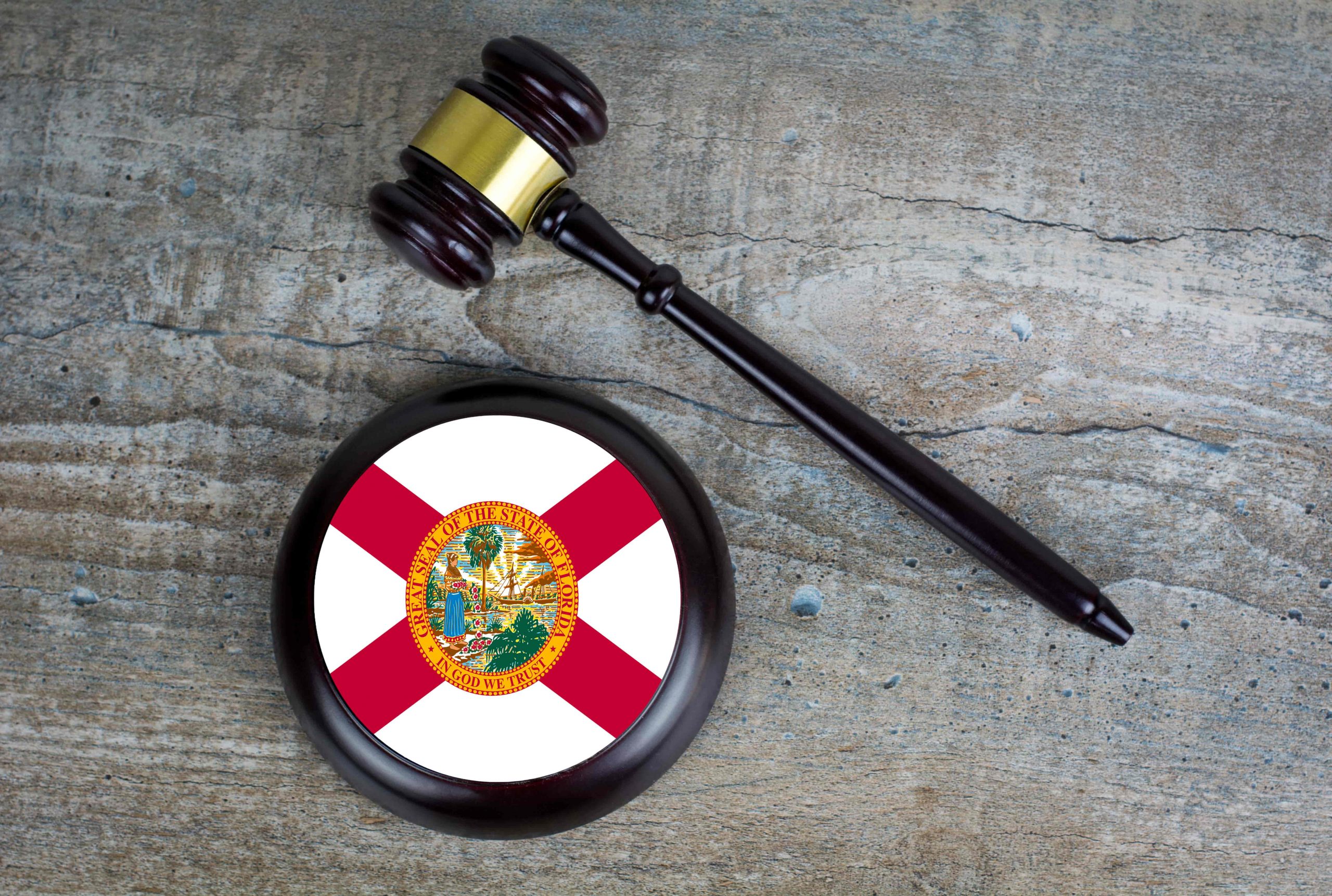Car accidents are overwhelming. One moment, you’re driving to your destination; the next, you’re dealing with insurance adjusters, medical visits, and endless paperwork. If you’ve been injured in a crash, knowing what information to provide your lawyer can make all the difference in the outcome of your case.
At Applebaum Accident Group, we’ve seen how crucial it is to present a well-documented case from the start. Florida operates under no-fault insurance laws, meaning your own Personal Injury Protection (PIP) coverage will handle initial medical expenses—but that doesn’t mean you don’t need a lawyer. If your injuries are serious or your damages exceed policy limits, proving liability becomes essential to securing the compensation you deserve.
By gathering the right documents, evidence, and details, you can strengthen your claim and help your attorney fight for maximum compensation. In this guide, we’ll break down exactly what you need to provide so your case starts on solid ground.
Information to Provide During the Initial Consultation
When meeting with a car accident lawyer for the first time, the details you provide can set the foundation for your case. The more precise and comprehensive your information, the better your attorney can assess your claim and determine the best strategy.
1. Basic Accident Details
Your lawyer will need a clear timeline of events leading up to and following the crash. Be prepared to provide the following:
- Date, Time, and Location: Note the exact date and time of the accident, as well as the specific location (street names, intersections, mile markers, or notable landmarks).
- Weather Conditions: Was it raining? Was there fog, heavy wind, or poor visibility? Weather can play a crucial role in accident liability, especially if road conditions were hazardous.
- Road Conditions: Mention any factors like construction zones, potholes, debris, or poorly marked lanes that may have contributed to the crash.
- Traffic Flow: Was traffic heavy or light? Were other vehicles speeding, merging aggressively, or failing to yield? This context can help your attorney understand potential contributing factors.
The more specific and accurate you are, the stronger your case will be. Your lawyer will use these details to establish fault, counter opposing claims, and negotiate with insurance companies effectively.
2. Police Reports

A police report is one of the most critical pieces of evidence in a car accident case. If law enforcement responded to your crash, they likely created a report that documents key details about the incident. Sharing this report with your lawyer can strengthen your claim and establish liability early in the process.
Why the Police Report Matters
- Establishes Fault: The responding officer will assess the scene, speak with those involved, and often note who they believe was responsible. While not legally binding, their opinion can carry weight when dealing with insurance companies.
- Documents Witness Statements: If bystanders saw the accident, their statements may be included in the report, helping confirm your version of events.
- Records Traffic Violations: If the other driver received a citation for speeding, running a red light, or reckless driving, this can be used as evidence in your favor.
What If I Was Partially at Fault?
Florida follows a modified comparative negligence system, meaning you can still recover compensation even if you were partially at fault—as long as you are not more than 50% responsible for the accident. However, your settlement will be reduced based on your level of fault.
For example, if you were 20% at fault for an accident and awarded $100,000, you would receive $80,000 after the reduction. This is why having a strong police report and legal representation is crucial—it can help dispute unfair claims and maximize your potential compensation.
If you haven’t obtained your police report yet, your attorney can help request it from the Florida Highway Patrol, local law enforcement, or the DMV, depending on where the accident occurred.
3. Insurance Information
Providing your attorney with comprehensive insurance details is crucial for building your case and ensuring you receive the maximum compensation possible. Florida operates under a no-fault insurance system, meaning your own Personal Injury Protection (PIP) coverage will initially cover medical expenses and lost wages—but that’s only part of the picture.
What Insurance Documents to Provide
- Your Insurance Policy: A full copy of your auto insurance policy, including coverage limits for PIP, bodily injury liability (BIL), uninsured/underinsured motorist (UM/UIM), and property damage liability (PDL).
- Proof of Premium Payments: This can be bank statements, credit card records, or receipts showing that your policy was active at the time of the crash.
- Claim Details: If you’ve already filed a claim—either with your insurer or the other driver’s—bring any claim numbers, adjuster contact information, and correspondence from the insurance companies.
- Other Driver’s Insurance Information: If you exchanged insurance details at the scene, provide the other driver’s policy number, insurance provider, and contact details to your attorney.
Why This Matters
Insurance companies often delay, deny, or undervalue claims, especially if they believe they can shift some of the blame onto you. Your lawyer will review your coverage, challenge unfair denials, and negotiate on your behalf—whether it’s with your own insurer or the other driver’s provider.
If the at-fault driver is uninsured or underinsured, your UM/UIM coverage may come into play, which makes having a lawyer even more essential in maximizing your settlement.
4. Medical Records
Your medical records are one of the strongest pieces of evidence in a car accident claim. They prove the extent of your injuries, document the treatment you’ve received, and establish a direct link between the accident and your medical condition. Without solid medical evidence, insurance companies may try to downplay or deny your claim, making it essential to provide your attorney with complete and organized medical documentation.
What Medical Records to Provide
Initial Diagnosis & Emergency Treatment
- Hospital records, ER visit summaries, and paramedic reports.
- X-rays, MRIs, CT scans, and other diagnostic tests.
- Doctor’s notes detailing injuries and initial treatment.
Ongoing Medical Care
- Physical therapy records, chiropractic treatments, and follow-up visits.
- Prescription medications related to accident injuries.
- Specialist referrals (orthopedic surgeons, neurologists, etc.).
Photos & Personal Documentation
- Photos of visible injuries (taken immediately after the accident and throughout recovery).
- A pain journal tracking daily symptoms, limitations, and recovery progress.
Out-of-Pocket Expenses
- Receipts for co-pays, medical devices (braces, crutches), and transportation to medical appointments.
Why This Matters
Insurance companies look for any excuse to dispute injury claims. If there are gaps in treatment or delays in seeking medical attention, they may argue that your injuries aren’t serious or weren’t caused by the accident.
Additionally, Florida’s 14-day rule requires accident victims to seek medical care within two weeks of the crash to qualify for Personal Injury Protection (PIP) benefits. Missing this deadline could limit your ability to recover compensation.
By providing thorough medical documentation, your lawyer can accurately calculate damages, prove the impact of your injuries, and negotiate for full compensation—including future medical expenses and pain and suffering.
5. Evidence from the Scene
Strong visual and physical evidence from the accident scene can make or break your case. Insurance companies and defense attorneys often challenge claims by arguing that injuries weren’t severe or that vehicle damage wasn’t significant. Providing your lawyer with clear, well-documented evidence strengthens your case and helps establish fault.
What Evidence to Provide
Photos & Videos
- Vehicle Damage – Take clear pictures of all vehicles involved, from multiple angles, including close-ups and wide shots.
- Injuries – Photograph any visible injuries immediately after the crash and throughout recovery to document healing progress.
- Accident Scene – Capture skid marks, traffic signals, road conditions, weather conditions, and any debris or hazards.
- Surrounding Area – If poor road design, construction zones, or obstructed signs played a role, document them as well.
Dashcam Footage (If Available)
- Dashcam recordings can provide unbiased, timestamped proof of how the accident occurred.
- Even if the footage doesn’t capture the entire crash, it may show dangerous driving behavior from the other driver leading up to the impact.
Witness Statements & Contact Information
- If bystanders, passengers, or other drivers saw the accident, collect their names and phone numbers.
- Witness statements can corroborate your version of events and provide additional perspectives that may not be included in the police report.
Why This Matters
Visual evidence is often more persuasive than verbal accounts. Insurance companies will scrutinize every detail to reduce their payout, so having irrefutable proof of damage, injuries, and road conditions helps counter their arguments.
If you were unable to gather this evidence at the time of the crash, your lawyer may be able to obtain surveillance footage from nearby businesses or traffic cameras. The sooner you provide this information, the stronger your case will be.
Info Your Attorney Will Ask For After Hiring Them
Once you’ve officially hired an attorney, they will take over communication with insurance companies and opposing parties to protect your rights and maximize your compensation. At this stage, providing additional documentation can help them build a stronger case, negotiate effectively, and accurately calculate your damages.
Communication Records
Your attorney will want to review any statements you’ve made to insurance companies, at-fault parties, or witnesses to ensure that nothing can be used against you. Even innocent-sounding comments can be twisted by insurers to minimize your claim.
What to Provide
- Statements Given to Insurers: If you provided a recorded statement to your insurance company or the at-fault driver’s insurer, your attorney needs a copy to ensure it aligns with your case strategy.
- Emails, Letters, and Texts: Any written correspondence from insurance adjusters, repair shops, or the at-fault driver should be shared with your lawyer.
- Denial Letters or Settlement Offers: If your claim was delayed, denied, or lowballed, these documents help your attorney challenge unfair tactics and demand fair compensation.
Why This Matters
Insurance companies record everything, and even a simple “I’m feeling better” could be twisted to imply that your injuries weren’t serious. Your lawyer will review past statements, take over communications, and prevent you from making costly mistakes.
Employment and Financial Records
If your injuries caused you to miss work or affected your earning potential, your lawyer needs financial documentation to prove lost wages and future income losses.
What to Provide
- Pay Stubs & Tax Returns – Recent paychecks, W-2s, or tax returns help establish your regular income before the accident.
- Employer Verification Letter – A statement from your employer confirming missed workdays, reduced hours, or job modifications due to your injuries.
- Self-Employment Records – If you’re self-employed, bank statements, invoices, or profit-and-loss statements can help show lost income.
- Evidence of Diminished Earning Capacity – If your injuries limit your ability to work long-term, your attorney may work with medical and vocational experts to calculate future lost earnings.
Why This Matters
Lost wages aren’t just about days missed from work—they include bonuses, promotions, and long-term career impacts. Having concrete financial proof ensures that you receive full compensation for your income losses.
Vehicle Repair Estimates
Your attorney will need vehicle repair estimates or replacement costs to determine the full extent of your property damage claim.
What to Provide
- Repair Invoices & Estimates – Official estimates from a certified mechanic or body shop detailing repair costs.
- Total Loss Valuation – If your car was declared a total loss, provide documents showing the market value assessment from your insurer.
- Receipts for Rental Cars or Transportation – If you had to rent a car, use rideshare services, or rely on public transportation, these expenses should be included in your claim.
Why This Matters
Insurance companies often undervalue vehicle repairs or replacements. Your lawyer will ensure you receive fair compensation for your damages, including rental expenses while your car is being repaired.
Florida-Specific Considerations

Florida has unique laws that impact how car accident claims are handled. From no-fault insurance rules to strict statutes of limitations, understanding these regulations is crucial when pursuing compensation. Here’s what you need to know.
Understanding Florida’s No-Fault Insurance Laws
Florida operates under a no-fault insurance system, meaning that after a car accident, your own insurance company covers your initial medical expenses—regardless of who was at fault. This is done through Personal Injury Protection (PIP) coverage, which is mandatory for all Florida drivers.
How PIP Coverage Works in Florida
- Covers up to 80% of medical expenses and 60% of lost wages, up to $10,000.
- Applies only if you seek medical treatment within 14 days of the accident.
- Does not cover non-economic damages like pain and suffering.
When Can You Sue the At-Fault Driver?
Florida’s no-fault system limits your ability to sue for damages unless your injuries meet the state’s serious injury threshold, which includes:
✅ Significant or permanent loss of a bodily function
✅ Permanent injury as diagnosed by a medical professional
✅ Significant disfigurement or scarring
✅ Death (wrongful death claim by surviving family members)
If your injuries do not meet this threshold, your compensation is limited to your PIP benefits, and you cannot sue the at-fault driver for additional damages. However, if you qualify, you can pursue a claim against their insurance for pain and suffering, medical bills beyond PIP limits, and other losses.
Can I File a Claim If the Other Driver Is Uninsured?
Unfortunately, not all Florida drivers carry insurance—despite state laws requiring it. If the at-fault driver doesn’t have insurance or has inadequate coverage, recovering compensation can become more challenging.
Uninsured/Underinsured Motorist (UM/UIM) Coverage
If the at-fault driver is uninsured or their policy doesn’t fully cover your damages, your own UM/UIM coverage can help. This type of policy is optional in Florida, but highly recommended.
UM/UIM coverage can compensate for:
- Medical expenses exceeding PIP limits.
- Lost wages and future earning capacity.
- Pain and suffering if your injuries meet Florida’s serious injury threshold.
What If I Don’t Have UM/UIM Coverage?
If you don’t have UM/UIM coverage and the at-fault driver is uninsured, you may have limited options. However, an experienced attorney can explore other potential sources of compensation, such as:
- Suing the at-fault driver personally (though collecting compensation may be difficult).
- Seeking compensation through third-party liability claims, such as a bar or restaurant in cases of drunk driving accidents (Florida’s dram shop laws).
- Using your own health insurance for medical expenses.
Statute of Limitations in Florida
Florida law sets strict deadlines for filing a personal injury claim after a car accident. If you miss this deadline, you lose your right to seek compensation—regardless of how strong your case is.
- Personal Injury Claims: 4 years from the date of the accident.
- Wrongful Death Claims: 2 years from the date of death.
- Claims Against Government Entities: 3 years, but requires a six-month notice period before filing.
Why This Matters
Insurance companies often stall or delay claims, hoping that victims miss the deadline. By working with an attorney early, you ensure that your case is filed on time and that valuable evidence isn’t lost.
Understanding Florida’s No-Fault System & Your Rights
Florida’s no-fault system, strict legal deadlines, and high rate of uninsured drivers make it essential to have a knowledgeable legal team on your side. At Applebaum Accident Group, we help accident victims navigate these complex laws and connect them with the right attorneys to maximize their compensation.
If you’ve been injured in a Florida car accident, don’t wait—call us today to protect your rights and get the help you deserve.





